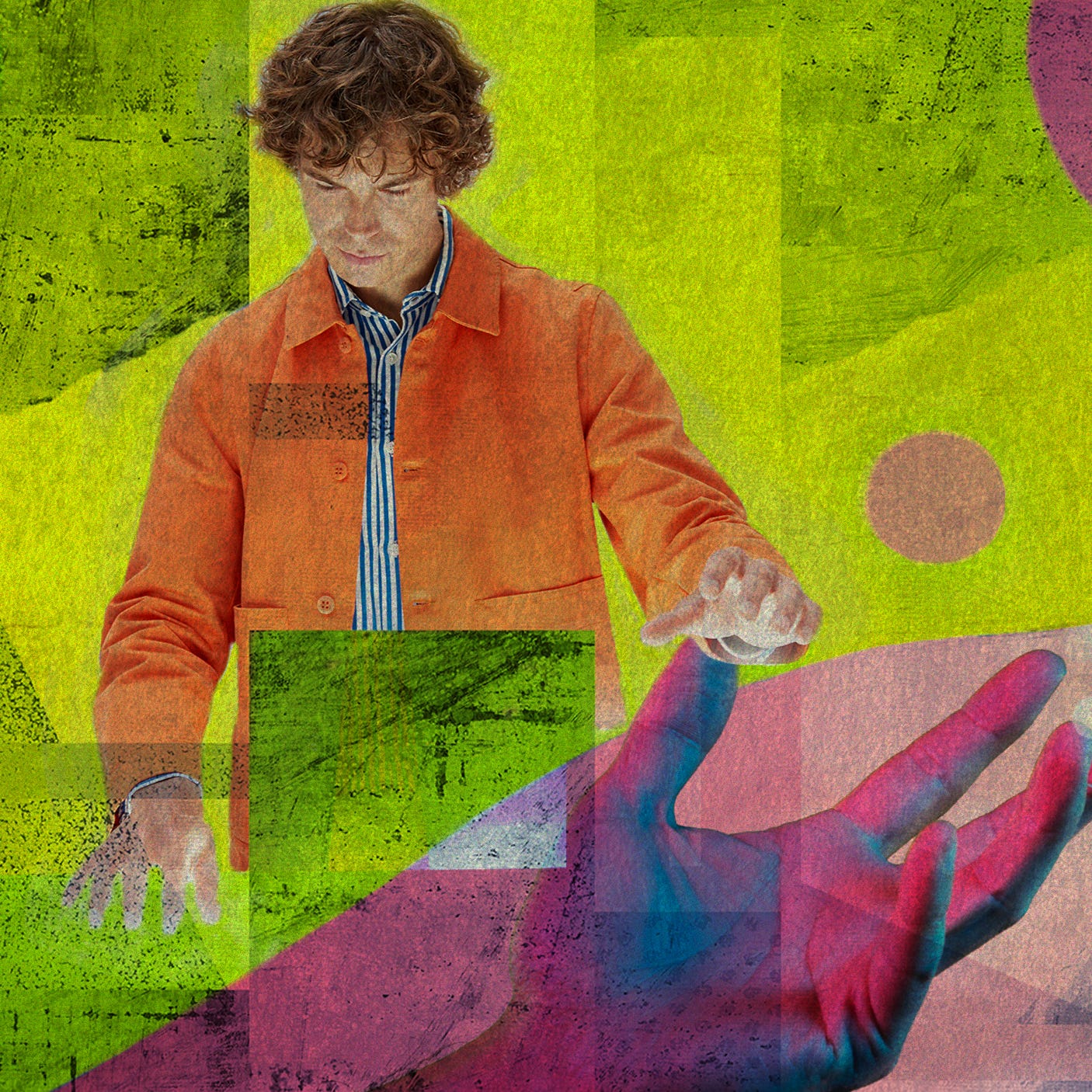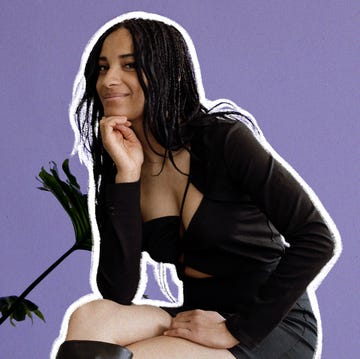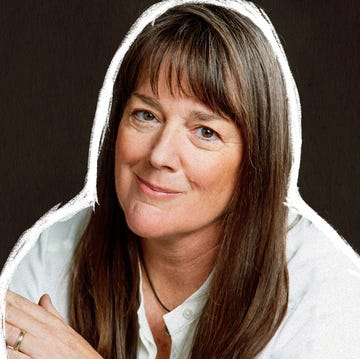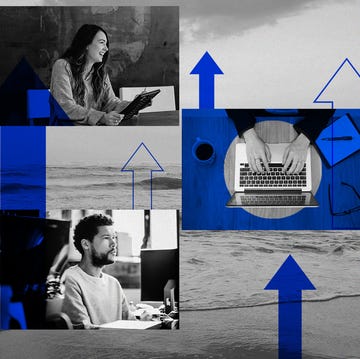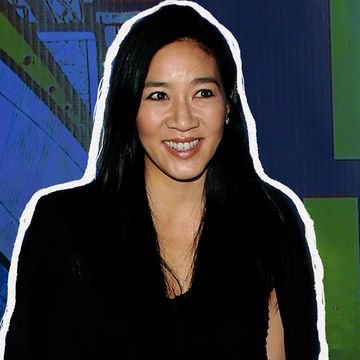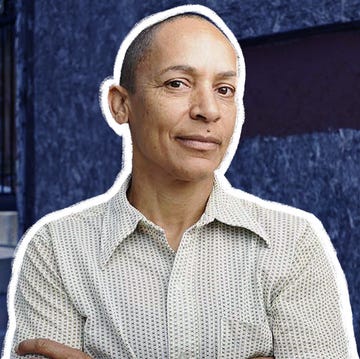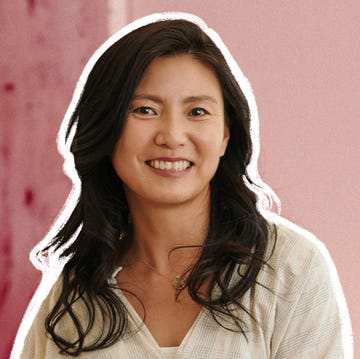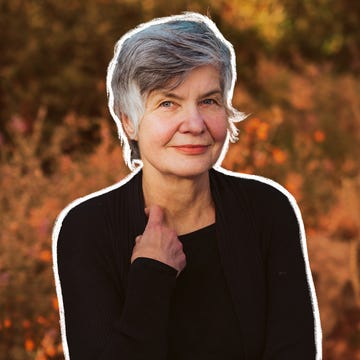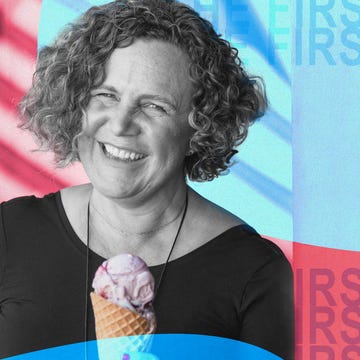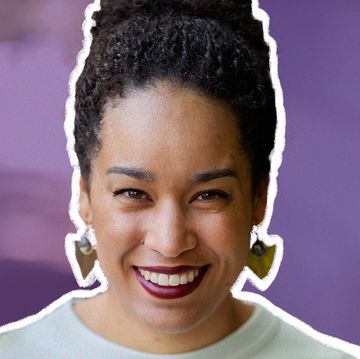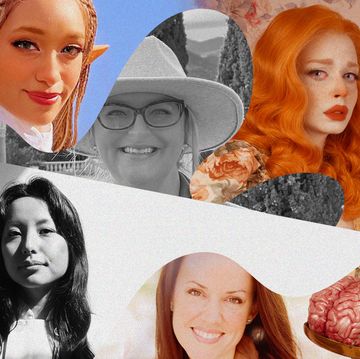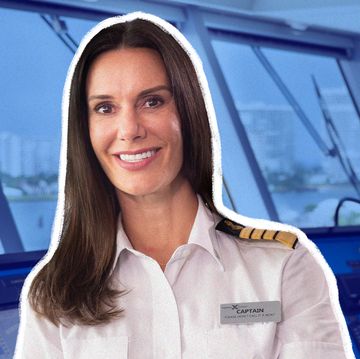Mara Wilson has lent her voice-acting skills to the Welcome to Night Vale podcast, written articles for The New York Times, and even has a memoir, Where Am I Now? True Stories of Girlhood and Accidental Fame, to her name. But while she’s being recognized more and more for her myriad accomplishments — including a burgeoning career narrating audiobooks — Wilson is well aware that many people will always recognize her as the title character of the film Matilda.
The 35-year-old creative looks back fondly on her childhood acting career, which also included roles in Mrs. Doubtfire and Miracle on 34th Street. But as she’s expanded her job title beyond Hollywood to include writing and performing in different capacities, she’s also had to grapple with people’s perceptions of her, colored by Roald Dahl’s most famous heroine — something that used to bother her.
“I was in the shadow of that Matilda, who was much cooler than Mara,” says Wilson, who took on the role at just 9 years old. “People, when they didn’t know me, at first they would be like, ‘Wow, you’re in movies. You must be really cool!’ And then they talked to me, and I was this nerdy, socially awkward teenager, the way that all of us are to some extent. People would be like, ‘Oh, you’re not as cool as Matilda.’ Nobody ever said it to me, but you could kind of see it, the light dying in their eyes. And I felt like I was disappointing people by not being as smart or as interesting or as brave as people thought I was.”
Wilson’s experience of being pigeonholed reflects a level of unfairness and, perhaps, even absurdity in pinning someone’s identity to one’s career choice, even when that person happens to be a noted child actor. However, if we’ve learned anything in our regimented society, it’s that societal scripts don’t always include allowing people to be more than one thing. Even in the era of side gigs and hustle culture, which should, on the surface, create fertile ground for more multi-hyphenates, little kids are still asked, “What do you want to be?” rather than “What interests would you like to explore?” In high school, we might be asked to juggle a full educational load while also running the mile in gym, but when it comes to pursuing higher education, the pressure to declare a major weighs heavily, and attending an increasingly narrow slate of classes means our interests are in danger of becoming less diverse. And think about it: When was the last time you answered that age-old dinner party question “What do you do?” with anything other than the occupation that pays your bills?
That conflict is only magnified in the freelance artistic world, where often juggling more than one passion means becoming a one-person cottage industry. It isn’t enough to be an outstanding creator; we must also be an outstanding agent, decent personal assistant, adequate bookkeeper, and then, just when we’ve reached the point of exhaustion, a one-person publicist. It can be a struggle that’s doubled if your cluster of creative passions doesn’t pay the bills.
Exceptions to the rule — think David Bowie toggling between acting and music, or Oprah moving from journalist to keeper of an entire empire — seem to imply that in order to be more than one thing, you have to be wildly successful and rich in order to earn your multiple job titles. However, that fails to take into account the number of people exploring their passions in less-mainstream arenas.
Part of that “who am I?” struggle comes with acknowledging how you’re viewed by an audience. For example, although his book The Fault in Our Stars remains both one of the best-selling young adult novels of all time and was turned into a critically acclaimed feature film, John Green still prefers not to self-identify as a writer. “That feels fragile to me somehow, even after all this time,” he tells Shondaland. “If somebody is an investment banker, they usually don’t struggle to identify as an investment banker.”
Even so, on his 2015 press tour for the film adaptation of another of his YA novels, Paper Towns, Green was asked to play that role, answering the same list of questions over numerous press days. While Green is sympathetic to journalists who need their quotes, the experience opened his eyes to just how much fans code him into his work, whether it’s a new novel or the YouTube series Vlogbrothers, where he trades quips with his brother Hank.
“You trade your personhood in exchange for attention, right?” says Green, who many would do well to remember has also been creating highly popular educational science videos, many of which are organized under his CrashCourse vertical, online for more than a decade.
“But that’s also what we all do when we make TikTok videos or YouTube videos. I think in 2015, my focus was on the ways that we commodify experience and personhood in exchange for attention, and the different difficulties that that can create. But now I look at it eight years later, and I think, well, this is also a very widespread phenomenon. For lots of young people, not just for actors, but for anybody who’s making stuff on the internet for the public.”
Hrishikesh Hirway, the host of Song Exploder, outright rejects the idea that his day job is linked to his identity. As a podcaster, he’s had the opportunity to interview artists like Lorde, Lin-Manuel Miranda, Robyn, Dua Lipa, and Madonna as they break down the process of creating one of their most iconic tracks. And while Hirway loves making things and taking an idea from concept to creation, it’s the process of making music that defines him as a person.
For a while, he was a staple of the Los Angeles music scene with his project the One AM Radio. Song Exploder, in all its success, was the result of him attempting to create job security through creating a role only he could fulfill. However, with its popularity came an unusual personal quandary: How do you reconcile who you believe you are with the job that pays your bills and the public persona you’ve accidently created? Even if you love the process — which Hirway makes clear he does — it’s a difficult question.
“People thought that I was a journalist, that podcasting was my main thing,” he says. “After Song Exploder, I started making this other podcast called The West Wing Weekly, which was even further removed. There was never a sense of connecting the dots backwards. And frankly, it was a bummer. I’m interacting with hundreds of thousands of people with each of these episodes, and they don’t see me the way I see myself. … After a few years in, I didn’t really know what to do about it because the musical writer’s block that had set in when I started Song Exploder was just getting deeper. It felt like it was getting more compounded by making the podcast because I’m working on these episodes with some of the most successful artists in the world — but what point was there for me to make something myself? It would always come back to haunt me. ‘Maybe I’ll try writing a song?’ Who cares?”
To answer the question of public perception, Green realized he had to put limits on his relationship with his audience. Reading reviews was already out — “When I hear a positive comment, I think like, ‘Well, that’s nice, but I know it’s not true,’” he says. “And then when I hear a negative comment, I’m like, ‘There’s the truth!’” — but he notes that his social media hiatus, which he announced several years ago, is likely to remain permanent. Which is fine by him — these days, he’d rather discuss the sordid history of tuberculosis on CrashCourse without stopping to consider if that sounds weird coming from a man who also makes his living writing about teenagers in extraordinary circumstances.
“You don’t have to just be one person,” Green says. “You get to do lots of stuff, which is fun. And you get to express yourself in lots of ways and explore lots of stuff that’s interesting to you. It’s given me the gift of being able to write both novels and books like The Anthropocene Reviewed; it’s given me the gift of being able to write CrashCourse videos about world history and Hamlet. It’s allowed me to really be able to follow my passions and trust that at least some people will go with me.”
Like Green, Wilson is well aware that her public persona will inevitably follow her as she moves between projects. But as a performer, she’s come to embrace that even when she’s creating for herself, it’s important to her that her audience connect with the final product.
“I think that I can get a little bit anxious about writing because I get in my head about what people are going to think,” she says. “I went to theater school, where I saw a lot of art that didn’t consider the audience or wanted to provoke the audience. And I think that I have a different relationship with my audience. I don’t want to bother them or upset them. I might want to make them think or make them laugh. I feel like I have a prom date, like the coolest girl in school. I just want to make her happy. That’s what having an audience feels like for me. I just want to make sure she has a great time at the prom.”
Ultimately, it’s nearly impossible to separate public perception from the work you’re putting out in the world. The good news is that there’s a quick life hack to claiming the creative identity you see yourself inhabiting: actually putting in the work.
Hirway discovered that once he started making space in his life and scheduling sessions to work on his own music, it was hard to worry about the validity of a project when he was simply taking joy in its creation. In 2022, he released Rooms I Used to Call My Own, his first album under his own name, featuring musical assists from Kimbra, Yo-Yo Ma, and Jenny Owen Youngs. He also toured with Youngs — a fellow musician with a podcast, further tying his two worlds together. And while he rejects the romantic notion that it was fate for him to make a podcast and then return to music, he concedes that it was helpful just being in contact with fellow creatives and absorbing lessons from his own show, an accidental self-made master class.
“Getting through the writer’s block period required me to kind of get out of my own head and start writing with other people,” he says. “When I did that, I suddenly felt different just by virtue of the fact that I was making music. ‘How do you convince the world that I’m a musician when nobody sees me as one?’ is hard to grapple with. It’s especially hard to do that when I don’t have any evidence to back it up. It’s like, ‘Oh, really? Are you playing the shows?’ No, I haven’t played any shows, and I haven’t put out any music. So, how could I look myself in the eye and say that I’m a musician, let alone how can I tell somebody else? But when I did start making music again, it felt so good. And it felt so much like I had found a way home or something, even just to the extent of being able to think of myself and what I was working on outside of the podcast. I’m engaged in this act of making a song again, and I love it so much, and I’ve missed it so much.”
As for Wilson, she’s currently enjoying audiobook recording. (“Let me live in a booth,” she jokes. “I want to die with cans on.”) However, like anyone with an excess of creative ideas, she’s not interested in ever limiting herself to just one line on her résumé. She enthusiastically brainstorms a future that involves producing documentaries about social justice (a nod to her college minor in sociology) and the natural world. She also hopes to lean more into writing, including narrative fiction and plays. And if a dream director came calling, she’d absolutely consider getting back in front of the camera.
“Maybe I’m a generalist; maybe I’m a dilettante,” she laughs. “I’ve kind of accepted that. Nobody has one job anymore. I was babysitting for a friend yesterday, and then went over to rerecord some audiobook lines, and then came home and started prepping another book. And then I promoted some other stuff that I was doing and talked about some writing projects. It’s like a million different things, and I’m happy that way. It takes some skill, which I’m still figuring out. It takes some finesse to be able to juggle them all. But there is something about it that I like, and I’m glad that I am fortunate enough to be in a place where I can do it all.”
Laura Studarus is a Los Angeles-based travel writer who has contributed to Fast Company, BBC Travel, and Thrillist.
Get Shondaland directly in your inbox: SUBSCRIBE TODAY
